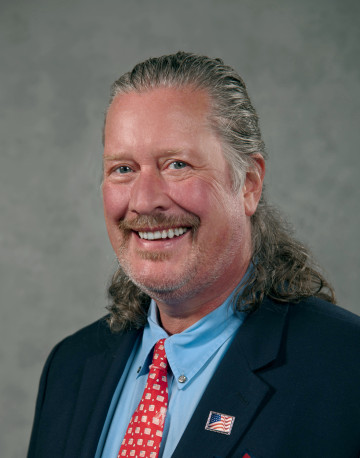John Hazen White’s LOOKOUT: Rhode Island Needs to Talk Twin River
Monday, September 16, 2013
GoLocalProv welcomes John Hazen White, CEO of Taco, Inc., and his LOOKOUT column on the most important issues facing Rhode Islanders -- and what to do about them.
Demand for table games at Twin River casino has prompted the Lottery Commission to grant the facility additional gaming tables, and the state’s take from the combination of video slot machines and table games is going up each month as a direct result of the tables in place.
The 14 new tables to be added will make for a grand total of 80. More gaming tables will surely be added down the road.
GET THE LATEST BREAKING NEWS HERE -- SIGN UP FOR GOLOCAL FREE DAILY EBLASTI suppose we should all be cheering about this because of the enhanced revenue stream the state will enjoy, which it desperately needs, but it begs a larger and more troubling question: what will happen to Twin River – and more importantly to the state – when Massachusetts’ three casinos and its single racino slot parlor come on line?
Adding a hundred more tables at Twin River is not going to stop Rhode Island from losing $100 million a year in revenue. That’s an estimate of course: it could be more. Rhode Island gamblers can cross state lines too.
Oh, that’s years from now, appears to be the attitude of lawmakers and state officials. After all, Massachusetts hasn’t even awarded the licenses yet, even as swarms of casino developers and promoters are blanketing the state in an attempt to seal the deal with potential host communities.
Massachusetts Ramping Up
There are currently 11 casino enterprises chasing licenses for the trio of casino venues and the racino parlor. Bay State destination casinos won’t go operational until five years from now, so there’s no need to push the panic button just yet. In typical Rhode Island fashion, let’s do nothing until the problem is about to overwhelm us.
However, now that the Plainridge trotters track in nearby Plainville right off 495 has new owners – Penn National Gaming – the prospect of competition for slots from a facility less than 20 miles away from Lincoln is now back on the table.
Penn National specializes in revitalizing horse tracks through the addition of slots. It operates 11 racinos in a number of states, and is looking to add Massachusetts to its list.
Up to the time of the unexpected implosion of Plainridge’s bid for the slot parlor license, prompted by unauthorized fingers in the counting room till and attempts to cover that up with supposed “loans” to one of the former ownership’s partners, Plainridge was considered to be the odds-on favorite to get the license.
Plainridge has been actively preparing for conversion to a racino since 2010 – even before the gaming legislation finally passed. It has built a new garage and has lobbied heavily on Beacon Hill. There was even a rumor that its former owners purchased slot machines and was storing them in anticipation of being awarded the license.
Voters in Plainville, as expected, approved the host community agreement with Penn National. The license for the racino is to be announced on December 15th and conversion of the track’s main building to a racino is expected to take no more than a year.
So if Plainridge beats out its three competitors for the slot license we can expect to see Twin River’s revenue begin be affected as soon as the doors open, which will be January 2015, little more than a year from now.
Rhode Island Must Act
The big three casinos will follow and there goes the $100 million that the Ocean State depends upon. Does the state have a plan to replace the lost revenue? No plan has been presented yet nor has any meaningful discussion taken place, at least publicly. In fact, there might be no ready solution to replace the lost revenue. So what do we do then?
This pending big problem is analogous to the state’s dithering over doing anything meaningful about its growing pension problem in the mid to late-2000s. Overall inaction and small reform measures here and there ultimately led to a fiscal crisis.
Now is the time to start facing the casino revenue problem, and it should be an issue for public debate as we move to new elections in November 2014.



